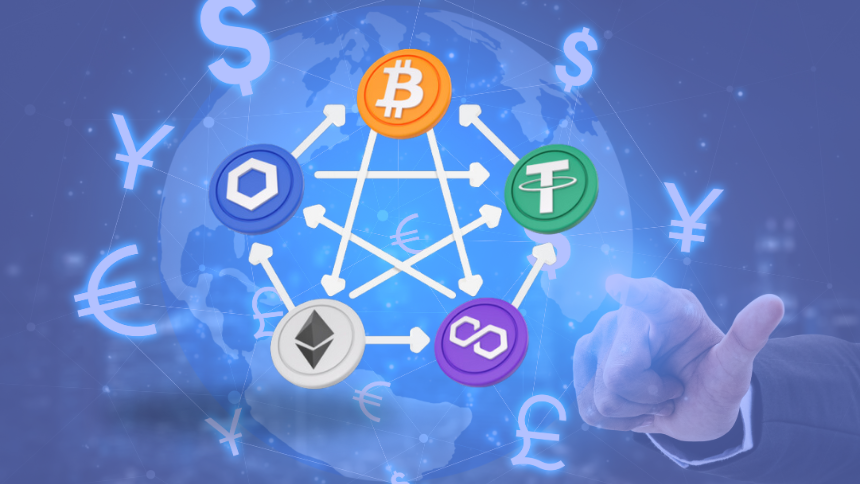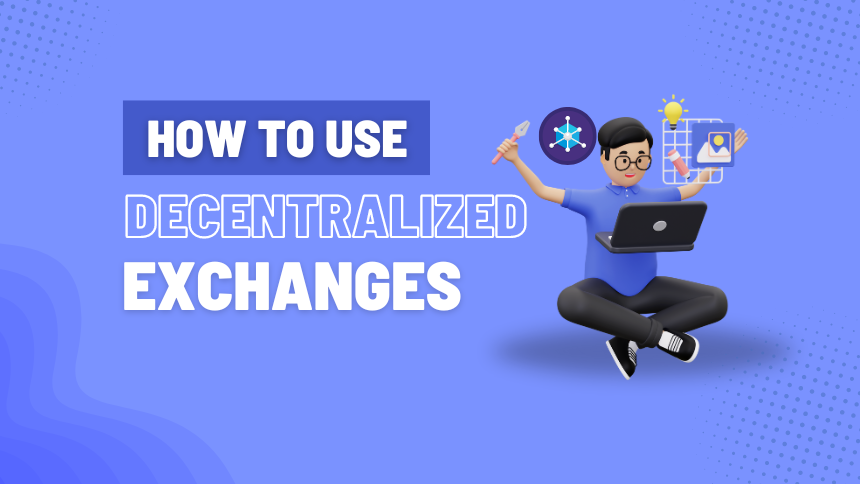Decentralized exchanges (DEXs) have gained popularity as a viable alternative to traditional centralized exchanges. Offering greater security, privacy, and control over funds, DEXs empower users to trade cryptocurrencies directly from their wallets without relying on intermediaries. In this informative guide, we will explore the fundamentals of decentralized exchanges, how to use them effectively, and the benefits they offer to users in India and beyond.
Understanding Decentralized Exchanges
Decentralized exchanges are platforms that facilitate peer-to-peer trading of cryptocurrencies without the need for a centralized authority to control user funds or execute trades. Unlike centralized exchanges, which operate as intermediaries and hold users’ funds in centralized wallets, DEXs operate on blockchain networks, allowing users to trade directly from their wallets using smart contracts.
Key Features of Decentralized Exchanges
- Security: DEXs offer enhanced security compared to centralized exchanges since users retain control of their private keys and funds throughout the trading process. This reduces the risk of hacks, theft, or loss of funds due to exchange vulnerabilities.
- Privacy: DEXs prioritize user privacy by allowing users to trade anonymously without the need for account registration or KYC verification. This ensures user privacy and protects sensitive personal information from being exposed.
- Control: Users have full control over their funds on DEXs, as trades are executed directly from users’ wallets using smart contracts. This eliminates the need to deposit funds into exchange wallets, reducing counterparty risk and enhancing user control.
- Global Access: DEXs offer access to a global pool of liquidity, enabling users to trade a wide range of cryptocurrencies with users from around the world. This provides greater liquidity and trading opportunities compared to localized exchanges.

How to Use Decentralized Exchanges?
Choose a Decentralized Exchange:
Research and choose a reputable decentralized exchange that aligns with your trading needs and preferences. Popular DEXs include Uniswap, SushiSwap, PancakeSwap, and QuickSwap.
Connect Your Wallet:
To start trading on a DEX, connect your cryptocurrency wallet to the exchange interface. Most DEXs support popular wallets like MetaMask, Trust Wallet, and Coinbase Wallet.
Select a Trading Pair:
Choose the cryptocurrency pair you want to trade from the list of available trading pairs on the DEX. For example, if you want to trade Ethereum for Chainlink, select the ETH/LINK trading pair.
Set Trade Parameters:
Enter the amount of cryptocurrency you want to buy or sell and set any additional trade parameters, such as price limits or slippage tolerance.
Confirm and Execute Trade:
Review the trade details and confirm the transaction using your wallet. Once confirmed, the trade will be executed directly on the blockchain using smart contracts.
Monitor Trade Status:
Monitor the status of your trade on the DEX interface or through your wallet. Depending on network congestion and trading volume, trades may take some time to be processed and confirmed on the blockchain.
Withdraw Funds:
Once the trade is completed, withdraw your funds from the DEX to your wallet for safekeeping. This ensures that you retain full control over your funds at all times.
Benefits of Using Decentralized Exchanges
- Enhanced Security: DEXs prioritize security by allowing users to retain control of their funds and trade directly from their wallets using smart contracts. This reduces the risk of hacks, theft, or loss of funds associated with centralized exchanges.
- Privacy Protection: DEXs offer enhanced privacy compared to centralized exchanges by enabling users to trade anonymously without the need for account registration or KYC verification. This protects users’ sensitive personal information from exposure.
- User Empowerment: Users have full control over their funds and trades on DEXs, eliminating the need to trust centralized exchanges with custody of their assets. This empowers users to manage their cryptocurrency holdings independently and securely.
- Global Market Access: DEXs provide access to a global pool of liquidity, enabling users to trade a wide range of cryptocurrencies with users from around the world. This global liquidity ensures competitive pricing and ample trading opportunities for users.
- Cost-Effectiveness: DEXs often have lower trading fees compared to centralized exchanges, as they eliminate the need for intermediaries and reduce overhead costs. This results in cost-effective trading for users, allowing them to maximize their returns on investment.
Conclusion
Decentralized exchanges offer a secure, private, and user-controlled alternative to traditional centralized exchanges. By understanding the fundamentals of decentralized exchanges and following the steps outlined in this guide, users in India and beyond can effectively trade cryptocurrencies while retaining full control over their funds. With the growing popularity of DEXs and their numerous benefits, they are poised to play a significant role in the future of cryptocurrency trading.
